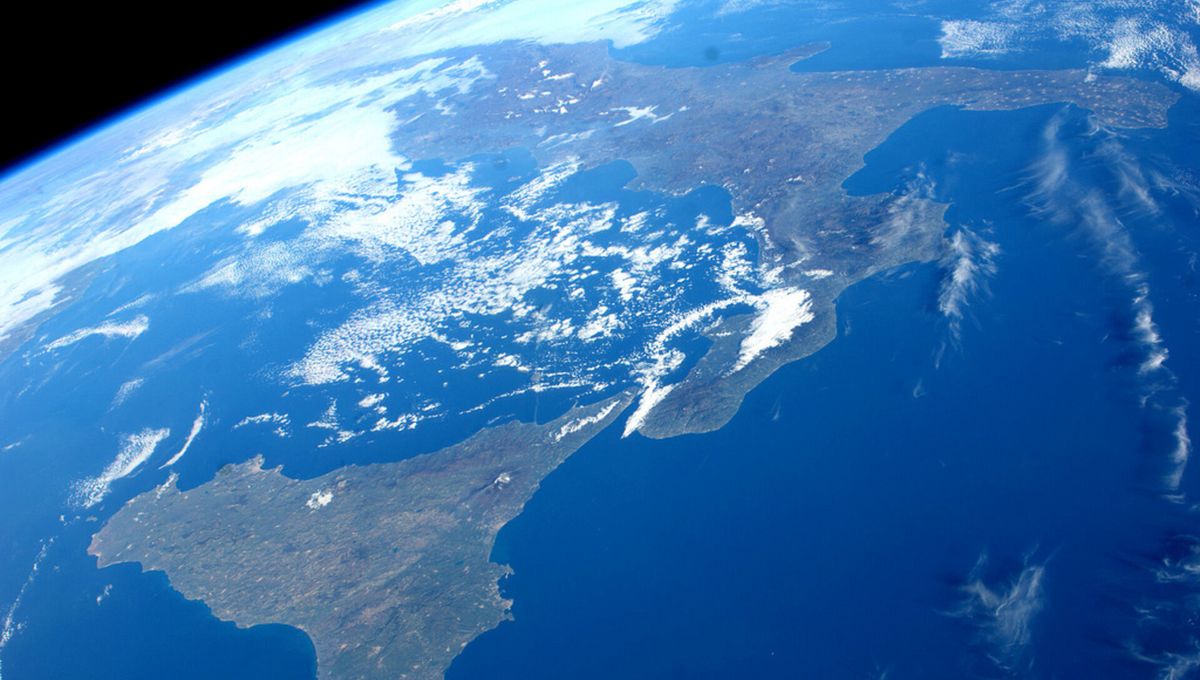
Deep below the mountains of Sicily, a vast deposit of ancient freshwater has been found. Although it has been trapped here for 6 million years or so, geologists believe could offer a solution to the modern-day water shortages faced by the many arid lands around the Mediterranean coastlines.
It’s estimated that the deposit contains 17.5 cubic kilometers (4.1 cubic miles) of water, forming an aquifer that spans 700 to 2,500 meters (2,300 to 8,200 feet) deep beneath the Hyblaean Mountains in southeastern Sicily off the coast of Italy.
The discovery was made by scientists from the University of Malta, the University of Roma Tre, and the University of Bologna by looking at maps and data from previous surveys looking for oil deposits, then using this information to build 3D models.
They believe the water ended up here some 6 million years ago, indicating it may have something to do with the Messinian salinity crisis, a 700,000-year-long geological event when the Mediterranean Sea became parched and almost completely dried up the basin.
The Messinian salinity crisis was caused by the closing of the trait of Gibraltar, the narrow passage of water that connects the Atlantic Ocean to the Mediterranean Sea and separates Europe from Africa. Scientists theorize that the crisis came to an end around 5.33 million years ago when the Zanclean megaflood suddenly refilled the Mediterranean Basin and reconnected it to the Atlantic via the Strait of Gibraltar.
Prior to this flood when the basin was still dry, the seabed was exposed and rainwater was able to trickle down into the crust. It was then soaked by an aquifer, a water-bearing rock, like a sponge where it has remained ever since.
The Mediterranean basin is particularly vulnerable to climate change. With the region set to become warmer and increasingly arid in years to come, many are worried that there might not be enough drinkable water to supply its growing population.
The researchers explain that groundwater deposits found under Sicily’s Hyblaean Mountains could help address the problem in southern Italy, as well as other regions in North Africa that are also home to subterranean bodies of groundwater.
“The discovery of such an extensive, preserved, and deep-freshened groundwater body has significant implications as an unconventional source of potable water, especially considering the numerous water-scarce areas along the Mediterranean coastlines (e.g., Morocco, Tunisia, Egypt, Lebanon, and Turkey),” the study authors write in their conclusion.
“Indeed, the geological setting and controlling factors in our study area occur elsewhere in the Mediterranean region, e.g., in the Adriatic Carbonate Platform and the Apulia Platform in Italy, in the Nara Platform in Tunisia, etc where other extensive, deep freshened groundwater bodies may be hosted in carbonate aquifers,” they added.
“The technology to explore and utilize such deep groundwater bodies nowadays exists, making these potentially extensive groundwater resources available for utilization.”
The study is published in the journal Communications Earth & Environment.
Source Link: Huge 6-Million-Year-Old Freshwater Deposit Found Deep Below Sicily